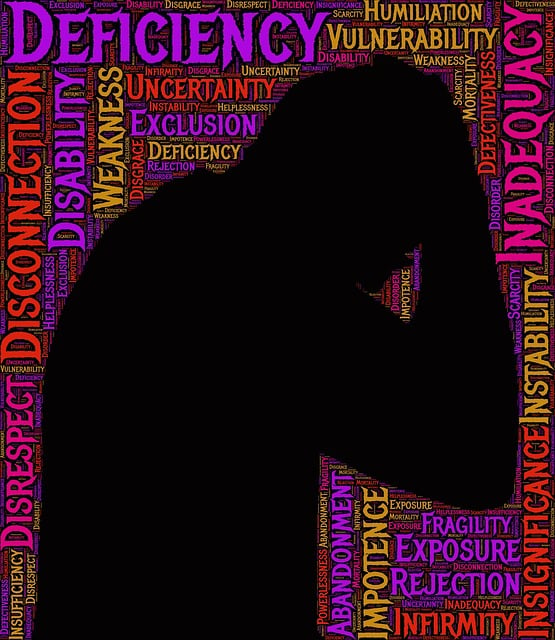In Highlands Ranch, effective Highlands Ranch Developmental Disability Therapy relies on comprehensive risk assessments that go beyond identifying hazards to understanding clients' complex environments and cultural backgrounds. This holistic approach, integrated with healthcare provider training and compassion cultivation, predicts crises, fosters resilience, and ensures culturally sensitive care tailored to individual needs. To mitigate risks for both therapists and clients, such as stress and trauma exposure, evidence-based practices, open communication, self-care, and public awareness campaigns are employed, enhancing the overall therapeutic experience in Highlands Ranch.
In the high-stakes field of mental health care, especially among therapists specializing in developmental disabilities in Highlands Ranch, risk assessment is a cornerstone of effective practice. This article delves into the intricate process of identifying and managing risks unique to this niche. We explore specific challenges faced by professionals in Highlands Ranch, offering insights on strategic risk mitigation. Through a comprehensive approach, we aim to enhance safety and support for both therapists and their clients within the context of Highlands Ranch developmental disability therapy.
- Understanding Risk Assessment in Mental Health Practice
- Specific Risks Faced by Developmental Disability Therapists in Highlands Ranch
- Strategies for Effective Risk Management and Mitigation
Understanding Risk Assessment in Mental Health Practice

In the realm of mental health practice, risk assessment is a critical component that involves meticulously evaluating and understanding potential hazards and vulnerabilities within a client’s life. For professionals like those offering Developmental Disability Therapy in Highlands Ranch, this process goes beyond mere identification of risks; it encompasses a comprehensive analysis of factors that may impact an individual’s well-being. By integrating insights from various domains, including behavioral patterns, social environments, and cultural backgrounds, mental health professionals can tailor their approaches to mitigate risks effectively.
The significance of risk assessment is further underscored by the importance of Healthcare Provider Cultural Competency Training. This training equips practitioners with the knowledge and skills to navigate diverse cultural contexts, fostering more nuanced and empathetic care. Coupled with Compassion Cultivation Practices, risk assessment becomes a dynamic process that not only predicts potential crises but also cultivates resilience and promotes positive outcomes for clients. Such an holistic approach is vital in ensuring that mental health professionals in Highlands Ranch can provide high-quality, culturally sensitive care tailored to each individual’s unique needs.
Specific Risks Faced by Developmental Disability Therapists in Highlands Ranch

In Highlands Ranch, where the demand for Highlands Ranch Developmental Disability Therapy services is on the rise, therapists face unique challenges. These professionals dedicate themselves to supporting individuals with developmental disabilities, often navigating complex emotional and behavioral issues. The specific risks they encounter include intense emotional stress from managing severe cases, long working hours, and potential exposure to traumatic experiences of their clients.
Furthermore, Mind Over Matter Principles can play a crucial role in mitigating these risks. Therapists employ techniques for Anxiety Relief and promote self-care practices to maintain their well-being. Public Awareness Campaigns focused on mental health and disabilities are also essential, as they foster understanding and reduce the stigma surrounding these issues, ultimately enhancing the support system available to both therapists and their clients.
Strategies for Effective Risk Management and Mitigation

Mental health professionals, including those at Highlands Ranch Developmental Disability Therapy, face unique challenges that require robust risk management strategies. One key approach is to implement a comprehensive risk assessment framework tailored to individual clients and their specific needs. This involves identifying potential risks early, such as escalated client behaviors or emotional distress, and developing proactive mitigation plans. By fostering an environment where open communication and trust are prioritized, therapists can better anticipate and navigate these risks effectively.
Additionally, integrating evidence-based practices like Social Skills Training, Conflict Resolution Techniques, and Compassion Cultivation Practices enhances risk management. These strategies not only improve client outcomes but also equip professionals with the tools to handle challenging situations with composure and empathy. Through ongoing training and supervision, mental health workers in Highlands Ranch can stay updated on best practices, ensuring a safe and supportive therapeutic environment for all involved.
Mental health professionals, especially those specializing in Highlands Ranch developmental disability therapy, must consistently navigate complex ethical and practical challenges. By understanding risk assessment as a foundational practice, therapists can proactively identify and mitigate potential dangers. This includes recognizing specific risks unique to this field, such as intense emotional interactions and sensitive case histories. Through the implementation of effective strategies for risk management and mitigation, professionals in Highlands Ranch developmental disability therapy can ensure they provide safe, ethical, and high-quality care while safeguarding their own well-being.












